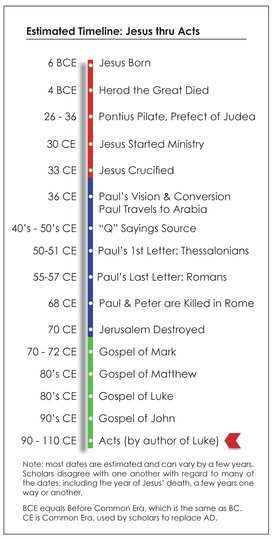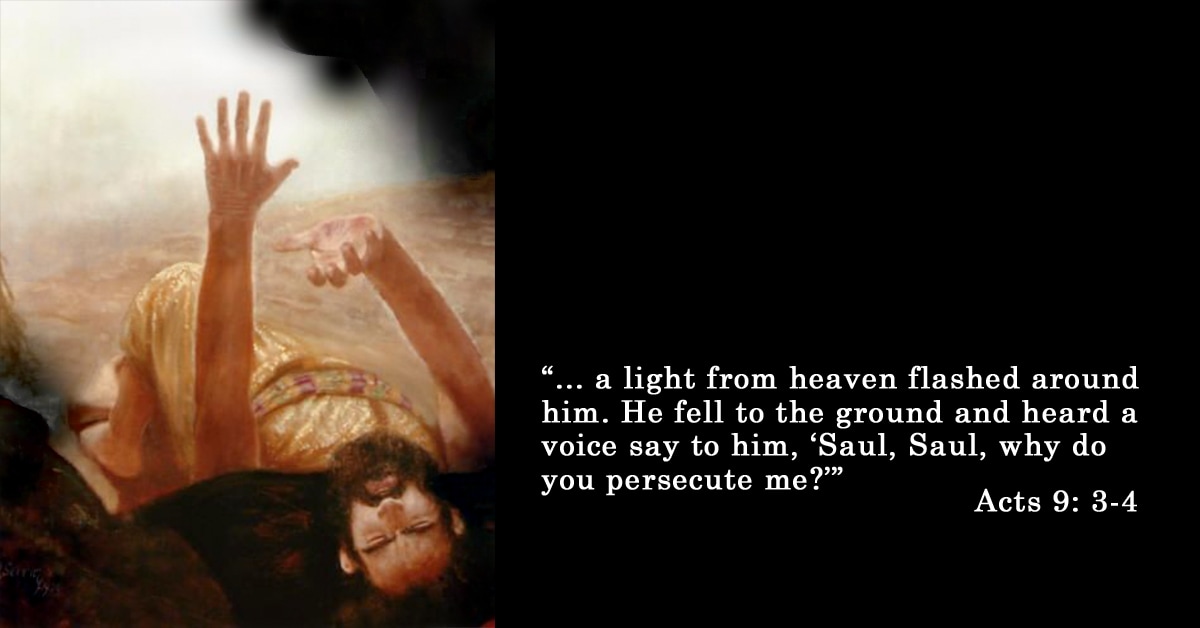 RESURRECTION, PAUL, JESUS AND EASTER Installment 6 Resurrection: Establishing Paul’s Credentials The first description of the resurrection comes to us from Paul’s letters (Corinthians, Thessalonians, Galatians, etc.), not from the Gospels. Again, this is important because Paul wrote decades before any of the Gospels were written, so if we want to know what the Apostles believed, what they thought had transpired with Jesus right after he died, and how people perceived him within the first few decades, Paul’s opinions and knowledge of events should prove invaluable. Because Paul met with Peter and James (Jesus’ brother) roughly 3 years after Jesus died, his writings allow us to see and hear what the Apostles thought and felt about the resurrection before any of our existing Gospels were written. This early understanding about Jesus and his death not only applies to the Gospels, this applies to the book of Acts as well, which was probably the last of the first century documents that we have. The reason that this is important is that Acts purports to be an accurate record of Paul, his travels, his thoughts, and his interaction with the disciples, the apostles, and the Jerusalem church (realizing that there really is no “church” during the years that Paul was preaching and teaching, just in-home meetings). If you try to fill in the gaps in Paul’s life, or interpret Paul’s thoughts, intentions and teachings by reading the book of Acts, you can’t. It doesn’t stand up to critical scrutiny as to timelines and historical accuracy. That is important to note because most biblical scholars now think that we shouldn’t depend on the book of Acts to tell us precisely what Paul said or did, where he went and when, or even why; which is all very strange because the author of Acts probably had copies of Paul’s letters in front of him when he wrote, but then selectively changed history to make it sound more like Paul and the Jerusalem church were completely in alignment, which they weren’t. The author of the Gospel of Luke, and the book of Acts, were one and the same. As he wrote this second letter to a “dear friend who loves God” he tried to fill in the blanks and create a story in keeping with his (or his group’s) agenda to remake Paul into something that was more in line with the growing church’s idea of what was politically expedient in the Roman empire some 70 yrs. after Jesus had died. See timeline to the left. By the time that Acts was written it is a new and completely different world. By this time there is a church and there is a desire to bring as many diverse elements of faith as possible into a unified whole. It is quite clear that the author wants to portray Paul and the Jerusalem church to be in total harmony in all matters of faith from the very beginning, but I believe Paul when he says that he stood up to Peter and the rest of the disciples and others from the Jerusalem church that dogged his ministry every step of the way. I think that it is quite clear that Paul parted ways shortly after he had his dust-up in Antioch with Peter, James (Jesus’ brother), and others that were sent from the Jerusalem church to keep tabs on Paul and bring him more in line with the Jesus that they intimately knew and loved. He was angry after this confrontation, and thereafter struck out on his own, with his own vision of Jesus and his place in God’s plan for humanity. No wonder Paul was always fighting a rear-guard action. In Paul’s letter to the Galatians he makes it clear that he considers himself above the Apostles, above the original disciples, above even heaven itself when it comes to understanding Jesus and God. Listen to Paul’s words and judge for yourself. Gal. 1: 1-2 addresses the Galatians by saying: “[I am] Paul, an envoy, not appointed by any human authorities nor by any individual but by Jesus, God’s Anointed, and by God, Creator and Benefactor, who raised Jesus from among the dead.” Gal. 1: 8, “Even if one of us, or for that matter a messenger from heaven were to advocate a message different from the one we [meaning, Paul] delivered—they must be rejected and shunned!” Gal. 1: 11-12, “Let me make it clear, friends, the message I announced does not conform to human expectation. I say this because it was not transmitted to me by anyone nor did anyone teach it to me [he means the original disciples of Jesus]. Rather, it came to me as an insight [vision?] from God about Jesus as God’s Anointed.” [Quotes and translations from the letters of Paul are from The Authentic Letters of Paul by Dewey, Hoover, McGaughy and Schmidt] That’s quite a claim. You can imagine how that might have gone over with the Apostles and disciples that knew Jesus personally. It would be like me telling Jesse Jackson, Al Sharpton, or Ralph Abernathy that I had a vision of Martin Luther King Jr., and my interpretation of his words and deeds were in fact the Truth (with a capital ‘T’). How do you think that that would go over? I assume that if we met at a gathering, that there might be words exchanged between us—just like what happened with Paul in Antioch. All we have to go on are Paul’s recollections and interpretations of events and circumstances surrounding his disagreement with the Jerusalem church. We have no record of what Peter, James or any other Apostle or disciple thought about the confrontations with Paul, or his theology. The closest we come is found in the book of Acts, and as I explained, that probably is a whitewash to provide a harmonious and unified front to later believers—because it is diametrically opposed to what Paul bluntly says in his own letters to his followers. The writing of Acts has been generally assigned to the later part of the 1st Century, but now historical detectives have perceived the writings of Josephus’ from his book entitled, Antiquities of the Jews. Because we know that this famous Jewish historian wrote Antiquities of the Jews in Rome late in the 1st century (93-94 CE), some scholars have moved the date of Acts over the lip and into the beginning years of the 2nd century, mainly because it would have taken a decade or two before Josephus’ book could have been hand copied and distributed widely enough to have become available to the author of Luke/Acts. So, now we know the players, and their place in history, let’s next look at what Paul thought about the resurrection and what that meant to him, and thereafter to the following generations. To be continued with Installment 7 |
AuthorArchitect, software CEO, 30-year student of the historical Jesus and early Christianity. Show host of AuthorTalk, interviewing religious and spiritual authors. Archives
May 2017
|

 RSS Feed
RSS Feed

